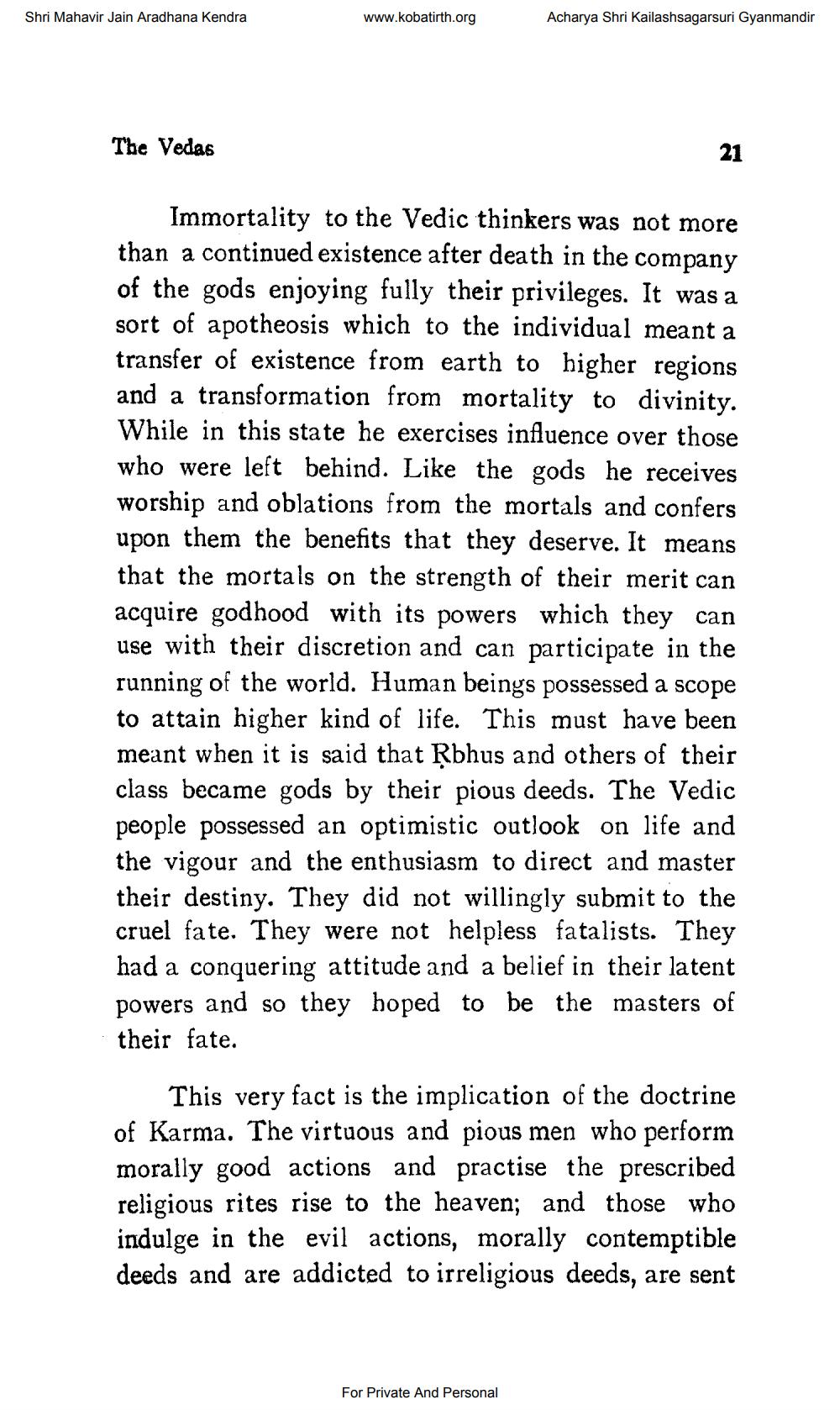________________
Shri Mahavir Jain Aradhana Kendra
The Vedas
www.kobatirth.org
Acharya Shri Kailashsagarsuri Gyanmandir
21
Immortality to the Vedic thinkers was not more than a continued existence after death in the company of the gods enjoying fully their privileges. It was a sort of apotheosis which to the individual meant a transfer of existence from earth to higher regions and a transformation from mortality to divinity. While in this state he exercises influence over those who were left behind. Like the gods he receives worship and oblations from the mortals and confers upon them the benefits that they deserve. It means that the mortals on the strength of their merit can acquire godhood with its powers which they can use with their discretion and can participate in the running of the world. Human beings possessed a scope to attain higher kind of life. This must have been meant when it is said that Ṛbhus and others of their class became gods by their pious deeds. The Vedic people possessed an optimistic outlook on life and the vigour and the enthusiasm to direct and master their destiny. They did not willingly submit to the cruel fate. They were not helpless fatalists. They had a conquering attitude and a belief in their latent powers and so they hoped to be the masters of their fate.
For Private And Personal
This very fact is the implication of the doctrine of Karma. The virtuous and pious men who perform morally good actions and practise the prescribed religious rites rise to the heaven; and those who indulge in the evil actions, morally contemptible deeds and are addicted to irreligious deeds, are sent




